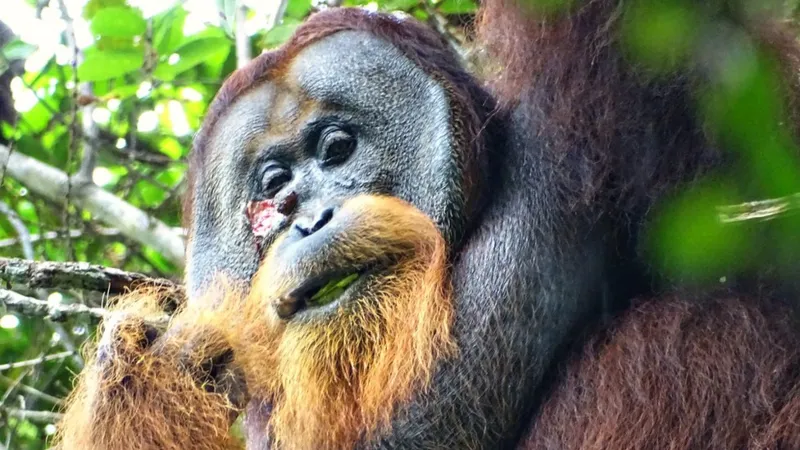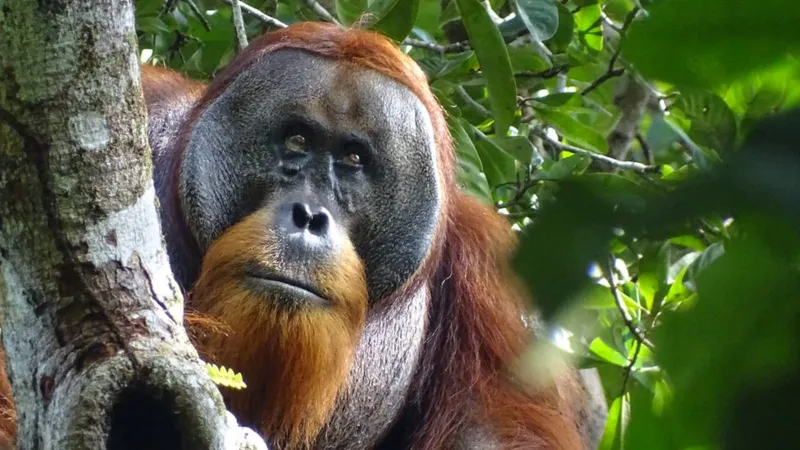In a groundbreaking discovery, scientists in Indonesia observed a Sumatran orangutan self-medicating by using a plant-based paste to heal a significant wound on its cheek.
This marks the first instance of a wild animal recorded treating an injury with a medicinal plant, shedding light on the remarkable similarities between humans and great apes.
The orangutan, named Rakus, was spotted by researchers in the Gunung Leuser National Park with a severe cheek wound in June 2022, likely sustained during a confrontation with rival males.

Witnessing Rakus chewing the stem and leaves of the Akar Kuning plant, known for its anti-inflammatory and anti-bacterial properties, the researchers observed him applying the paste to his wound diligently.
For seven minutes, Rakus repeatedly applied the medicinal liquid and smeared the chewed leaves onto his injury, continuing to do so for over 30 minutes.
Remarkably, the wound showed no signs of infection and began to heal within five days, with complete healing observed after a month.

Dr. Isabella Laumer, the lead author of the research from the Max Planck Institute, highlights the intentional nature of Rakus’s behaviour, suggesting that he recognized the medicinal properties of the plant.
While it remains unclear whether Rakus learned this behaviour from others or discovered it accidentally, researchers are intrigued by the possibility of observing similar medical skills in other orangutans.
The findings, published in Scientific Reports, underscore the remarkable intelligence and resourcefulness of orangutans, further blurring the lines between human and animal behaviour.




